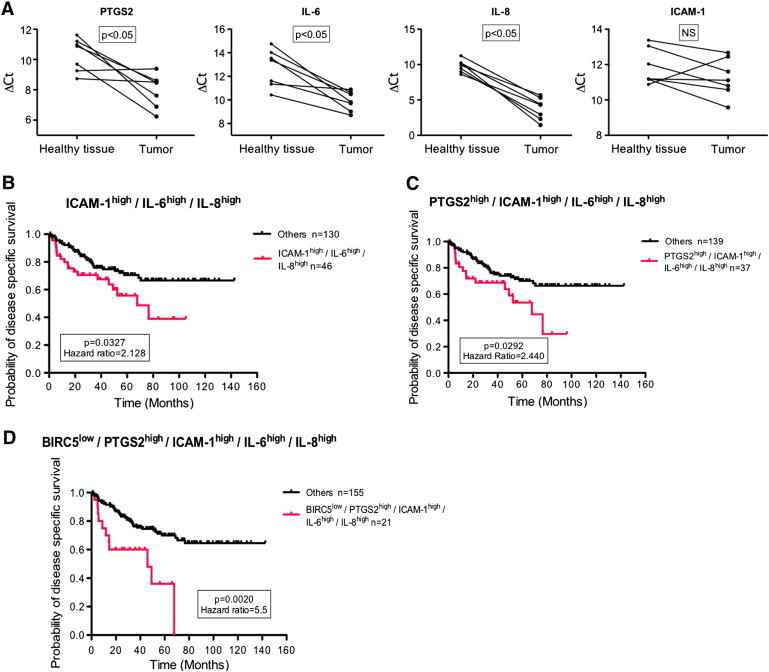Figure 8.

Cycling hypoxia-specific proinflammatory phenotype is associated with poor prognosis in human colon cancer. (A) Healthy and tumor biopsies from seven patients with colon cancer were collected and were used to evaluate PTGS2, IL-6, IL-8, and ICAM-1 mRNA expression by RT-qPCR. ΔCt of tumor is compared to ΔCt of healthy tissue for each patient. Statistical analysis was performed by Wilcoxon test. (B–C) Public Affymetrix array data of 176 colon cancer patients (GSE17536) for whom cancer-specific survival time is known were reanalyzed. Patients were stratified into two subgroups for each presented graph according to the median value, and Kaplan-Meier plots were drawn. The first graph (B) represents the probability of DSS for patients who display ICAM-1high/IL-6high/IL-8high expression phenotype (red) versus patients with other phenotypes (black), the second graph (C) patients with PTGS2high/ICAM-1high/IL-6high/IL-8high expression phenotype (red) versus patients with other phenotypes (black), and the third graph (D) patients with BIRC5low/PTGS2high/ICAM-1high/IL-6high/IL-8high expression phenotype (red) versus patients with other phenotypes (black). Gehan-Breslow-Wilcoxon test was used for statistical analysis. Hazard ratio (ratio of instant risk of death between groups) is also denoted.
